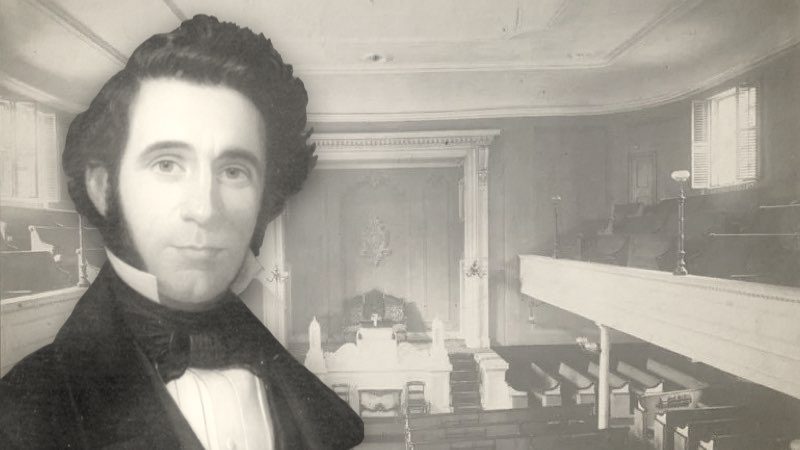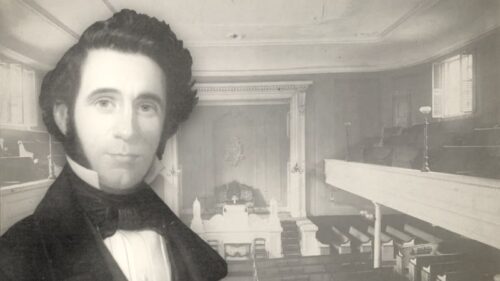Edward Hiscox
Edward Hiscox (1814-1901) was an American Baptist pastor and theologian. He was converted to Christ in 1834 and began to preach the gospel four years later. He served as the pastor for several congregations, including the Stanton Street Baptist Church, New York (1852). He is best known for authoring the “Standard Manual for Baptist Churches” (1890) and the “New Directory for Baptist Churches” (1894).
Edward Hiscox's New Directory For Baptist Churches
-
12 Baptist Councils
Councils for consultation and advice in ecclesiastical affairs are an established usage among American Baptists, especially at the North, East, and West. With the Southern churches there is a prejudice existing against them lest their action should come to be considered authoritative, and threaten a domination of the churches. For this reason they are seldom resorted to in that section. Indeed, through the whole extent of our denomination their doings have been watched with jealousy and regarded with not a little of suspicion, for fear they might grow to an interference with the independence of the churches; this doctrine of Church independency being held by them with great tenacity, both because they believe it taught in the New Testament and also because of the wrongs…
-
11 The Christian Ministry
Few questions can be so vitally important to any Church, whether as relates to its own peace and prosperity, or to the success of the work it is appointed to do, as that of the kind of ministry which shall serve and lead it. No greater blessing can be granted of Heaven to a Church than a capable, judicious, pious pastor; and no greater calamity can befall one than to have an incompetent, unfaithful, secularized, and worldly minded minister. The people naturally contemplate the office with feelings of reverence, and consequently regard the incumbent with very great deference, to say the least. The young, in a special manner, consider what he says as true, and what he, does as right. The position commands high regard,…
-
10 The Church’s Mission
Churches are Heaven's appointed agencies for the salvation of men. For, though it would be false and profane to say that men could not be saved outside the churches, and without their aid, yet, as a matter of fact, but few are converted and saved aside from associated Christian effort, as represented by the churches, or the zeal of personal piety, as nourished and stimulated by them. The mission of a Christian Church, therefore, is to a "world lying in wickedness," to men "dead in trespasses and sins," as the bearer of glad tidings to "prisoners of hope," and herald of the great salvation to lost men. In order to accomplish this, the Church must sustain a suitable spiritual condition, and maintain itself in the…
-
9 Christian Worship
Religious faith expresses itself both in worship and in work. In such acts of religious service as may declare the soul's devotion to the Deity, and in such works as are believed to be pleasing to Him, and such as naturally grow out of the faith cherished, and correspond to the worship offered. Worship, properly speaking, is adoration and praise offered to God. The emotion is instinctive in a devout soul and tends to exalt and magnify Him to whom all honor and glory are due. It is offered in view of the glorious excellency of the divine character; and also because of what God has done for men. Both for what He is, and for what He does. Worship is usually attended with confession…
-
8 Unusual Difficulties
In the maintenance of good order, and the administration of equitable discipline in a Church, there will at times arise cases of unusual difficulty; cases which require more than ordinary wisdom and prudence to manage justly, not to say satisfactorily; not so much, perhaps, because of the gravity of the offense, as because of the persistency of those concerned, the complications which arise in the progress of the case, the party spirit which may be engendered, and possibly, worst of all, the mistakes which the Church itself may make in the treatment of the matter. These mistakes thus give the culpable parties occasion to complain at the course pursued, even when they would not have condemned the final issue itself. I. A Divided Church. It…
-
7 Church Discipline
Every organization which proposes to work smoothly, and yet efficiently, must have certain rules and regulations to be followed; certain laws for the individual members to obey. Failing in this—either without laws or with laws disregarded— all effort will go wide of the mark, and all endeavors, instead of succeeding and furthering each other, will counteract and interrupt each other; confusion will ensue, the wisest designs be frustrated, and the best laid plans become abortive. This is true everywhere. In the State, in the family, every association whether for business, politics, scientific, literary or art research or improvement, all must be regulated by laws adopted for the common good, to which obedience is to be rendered by the members. And the object sought to be…


